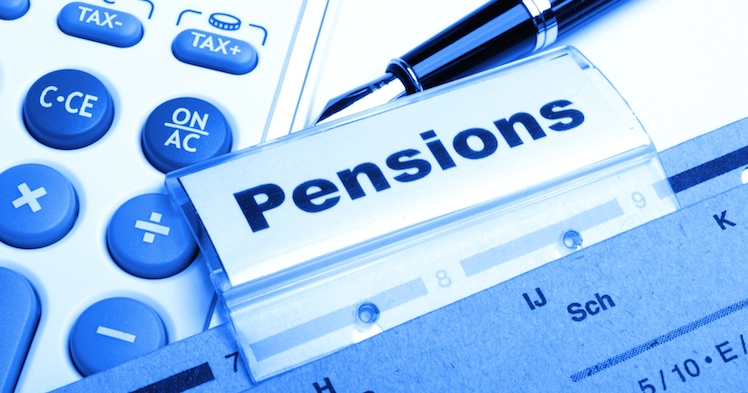Top 10 UK Pension Misconceptions

1. A UK Pensions gives me no access or control
A popular misconception is that pensions offer no access or control – that they represent an extremely passive form of investment.
This is unfounded; although an individual cannot access their pension savings until they reach retirement age, you still have control over where your funds are invested.
The best way to gain control of your pension fund is to opt for a self-invested personal pension (SIPP). This will allow you to invest in almost any investment fund, as well as invest directly in shares and/or UK commercial property. Contact us to find out more on how a SIPP may benefit you.
2. Pensions do not perform well
Much has been said in the media about the performance of pension funds in relation to our modern financial system. Negative stories circulate, and overall consumer opinion is affected.
The truth is, while pension funds have been hit by recent stock market volatility, this does not necessarily mean that pension perform badly, especially when you take the long-term view.
By their very nature, a pension should be seen as a long-term investment. Individuals with 20, 30 or 40 years to go before retirement, are in a position to take greater risk as any short term losses and market fluctuations prove less significant.
However, any one approaching retirement does need to minimize risk. It could prove a big mistake to expose oneself to a significant fall in pension value, just prior to needing a retirement income.
3. My property is my pension
For some reason many people see pension and property as distinct choices when it comes to saving for retirement.
After making money on the housing market, these same people choose to rely only on property as their pension fund.
This is a grave mistake. One should not view a portfolio of buy-to-let property as the sole source of a retirement income.
For one, investment property is far from tax-efficient. A property owner has to pay income tax on rental income. Capital gains tax will also be applicable on any value increase over the annual allowance.
Downsizing to release equity in your home is another option. However, the housing market is unpredictable.
Would you be prepared to sell in a falling market when the time comes? Your retirement fund would be adversely affected as a result. There is also the emotional impact of leaving the family home to consider.
4. It’s too late for me to start a pension
Quite simply, it is never to late to begin a pension fund. Assuming you have the means, you are able to place up to £50,000 a year into a pension – with the full tax relief that comes with that.
5. Pensions are too risky
Some people consider pensions to be a risky investment with inadequate returns. The fact is, most, if not all investments fluctuate in value. As with any other investment, assets within a pension have their risks.
However, with the aid of a reputable financial planner, you will be able to devise a retirement fund investment strategy that suits both your risk profile and the time and means you have to invest.
There are many available strategies that are designed to reduce risk. One method is to drip-feed available funds into the financial markets. Known as ‘pound cost averaging’ this more tentative investment approach helps to counter any undue market volatility.
This means that when prices are high you buy fewer shares, when they are lower you invest more. This provides more units of a higher value when prices recover. For those undertaking a long-term investment approach, this method reduces risk significantly.
6. My ISA is my pension
To consider a series of ISA’s as a substitute for a pension is also a mistake.
While ISA’s are a flexible approach towards a retirement income, they do not have the same tax benefits of a pension.
When a retiree takes pension benefits, they have the opportunity to take up to 25% of their pension fund as a tax-free lump sum, ideal for further investment.
ISA’s are best used as part of a wider approach to preparing for retirement. A sensible retirement income saving strategy is to have a combination of a pension, stocks and shares ISAs.
7. My employer will fund my retirement
Only those who have built up many years of entitlement in a final salary pension scheme should have confidence that their pension will be provided by their employer.
It has been widely publicized that even the once generous public sector pensions have been affected during the fallout of the global economic crisis.
At one time, an employee could rely on the state or their employer to see them through their retirement years, however that is no longer the case.
The reality is, in today’s world it is you who is responsible for your own retirement income.
8. The government will look after me
As covered above, the government has taken quite a strict line on pensions over the last few years. Anyone that thinks a state pension will see them through their retirement years is sorely mistaken. The sad truth is, if you rely on the government for your pension, you will find it difficult to make ends meat.
To put this into perspective; the basic state pension is currently £102.15 per week.
Men receive their pension at the age of 65, however this is set to rise until 66 for both men and women by 2020.
The idea of getting by on £442.65 a month should be enough to convince anyone that the government will not really look after you. If you want more than a very basic standard of living in retirement, you will need more than just a state pension.
9. I can’t pay in much, so it’s not worth it
Everyone has to start somewhere. Putting a little away each month now, will reap benefits in years to come. A process called compounding, means that you can receive investment returns on returns that have already been made.
In practical terms, this means that your overall investments can double every 10 years, (based on growth of 7% a year). This would see an £8,000 net investment into a pension, turn into £150,000 over 40 years.
From small things, big things grow – investing a little now will definitely help over the long term. Even the smallest amount invested into a pension fund is better than nothing at all.
10. Pension saving will reduce my benefits
At one time, there was little benefit for some people on lower incomes to focus on saving for retirement. Whatever they saved could end up be deducted from their means tested benefits, making the effect of savings more or less pointless.
However, the proposed introduction of a flat-rate state pension means everybody will soon be able to benefit from what they save.
The incentive here is to convince everyone, no matter their age or means, to start thinking about investing for their retirement. No matter what you can afford to save, the sooner you start thinking about your retirement planning, the better.



